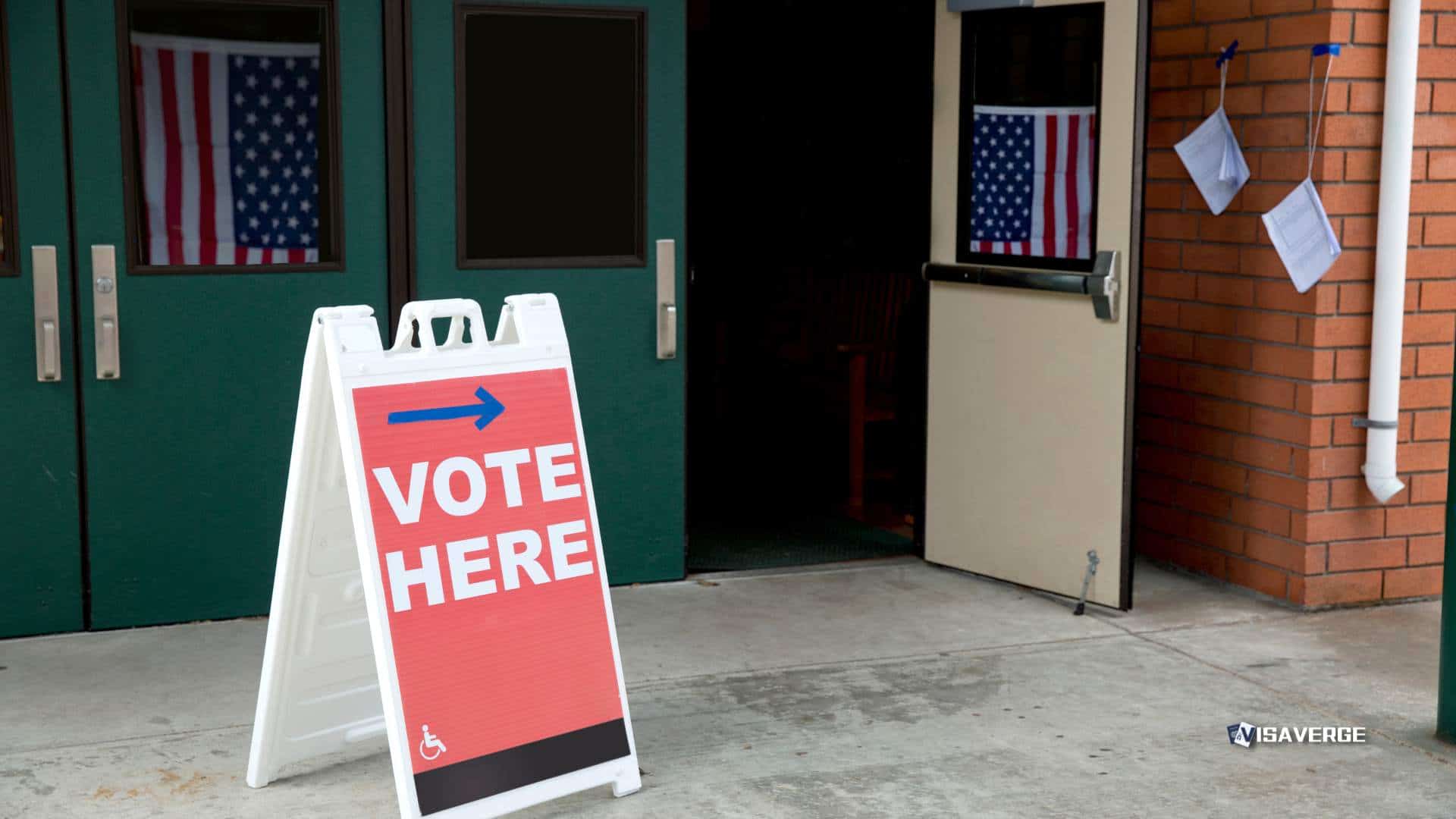Key Takeaways
• Federal court blocks Priya Saxena’s deportation and allows her to apply for Optional Practical Training (OPT).
• DHS revoked her F-1 visa over a minor 2021 traffic violation despite previous disclosure and cleared DUI suspicion.
• Case highlights growing scrutiny of 1.3 million international students’ records and rights to due process in the US.
A federal court’s decision to protect Priya Saxena, a 28-year-old Indian PhD graduate, from deportation after a minor traffic violation has drawn attention across the United States and abroad. The ruling not only allows Priya Saxena to remain in the country but also lets her apply for Optional Practical Training (OPT). For many, this case highlights the ongoing challenges and uncertainties that international students face in the United States 🇺🇸, especially in dealing with visa and immigration policies.
Priya Saxena’s long journey in the United States 🇺🇸 began years ago when she came to study chemical and biological engineering. Her path has not been easy, and recent events have made her story even more important to others who hope to study, work, and live in the US.

The Lead-up to Deportation: Minor Traffic Violation Sparks Major Consequences
In early April 2025, Priya Saxena, who had just finished her doctorate from South Dakota School of Mines & Technology, received shocking news. She was informed by email from the U.S. embassy in New Delhi 🇮🇳 that her F-1 visa, which was supposed to be valid until 2027, had been revoked. The email also stated that her Student and Exchange Visitor Information System (SEVIS) record—a key part of maintaining student status in the US—was terminated.
What caused this drastic move? It turns out the Department of Homeland Security (DHS) acted after reviewing a 2021 incident where Saxena failed to yield to an emergency vehicle that had flashing yellow lights. At first, she was suspected of driving under the influence (DUI), but blood tests later cleared her. These facts were fully shared with US officials when Priya Saxena first applied for her visa, and her visa had been approved despite this minor violation.
Her attorney, Jim Leach, explained that all of this was set out clearly in the original visa paperwork. “U.S. immigration officials knew about the 2021 traffic incident, and they still re-issued her visa,” he said. This action by the embassy came without warning and despite the fact that her case had already been discussed when her visa was granted. The sudden termination of her visa and SEVIS record left Priya Saxena facing the real risk of deportation, a move that would disrupt her career and her future plans in the US.
Legal Challenge: Fighting Back Against Visa Revocation and Deportation
Faced with this crisis, Priya Saxena and her attorney quickly filed a lawsuit against the DHS. They claimed that the department had violated the Administrative Procedure Act and Priya’s Fifth Amendment right to due process. In simple terms, they argued that the government cannot just revoke a student’s status or visa without warning or a hearing. This means everyone has a right to be notified and to respond before the government takes action against them.
The legal fight moved quickly. At first, the court gave Priya Saxena a temporary restraining order, which meant she could stay in the country and attend her graduation ceremony while the court looked further into the case. On May 16, 2025, the court ruled again in her favor, turning the temporary order into a preliminary injunction. In plain words, this meant the government was told not to arrest her or send her out of the country while her legal case moved forward.
The federal judge in the case said that DHS’s actions in Priya Saxena’s case were unlawful because they did not give her any chance to defend herself. Even when DHS argued that she had not really been hurt since her SEVIS status was restored, the court insisted it was important to protect international students’ rights. The decision also made it clear that Priya Saxena could apply for Optional Practical Training (OPT), a program that lets foreign graduates work in the US for up to a year after they finish their studies.
What Is Optional Practical Training (OPT) and Why Does It Matter?
The court decision is about more than one student. Optional Practical Training (OPT) is a vital part of the path for many international students in the US as it allows them to get work experience. With OPT, graduates like Priya Saxena can apply what they’ve learned in real jobs, which can help them build their careers and improve their chances of staying in the United States 🇺🇸 legally in the future.
To apply for Optional Practical Training, F-1 students need to follow strict rules, including submitting Form I-765 (Application for Employment Authorization) to US Citizenship and Immigration Services. More details about the OPT process can be found on the official USCIS website.
In Priya’s case, the injunction means she can move forward with her application and continue her work in her field, which is chemical and biological engineering. This is important not just for her but for the US as well, as many students in science, technology, engineering, and math (STEM) help to drive research, technological growth, and innovation in the country.
The Wider Picture: Impact on International Students and US Policy
Priya Saxena’s case is not unique. Analysis from VisaVerge.com suggests that DHS has recently examined the records of 1.3 million international students, with thousands flagged for possible visa revocations. It’s a reminder that, for many foreign students and graduates in the United States 🇺🇸, their ability to stay can depend on small mistakes or on how agencies interpret rules, which change from time to time.
According to Priya’s attorney, there are “dozens and dozens” of cases where students have successfully challenged the DHS when their status was revoked for minor or unclear reasons. At the same time, many students may not have the resources or support to fight back, which can mean their education, career, and lives are quickly turned upside down by a sudden deportation order.
This uncertainty has made many students nervous. Many worry about whether a small mistake—like a minor traffic violation—could end their dreams in the US. It also means that schools, universities, and employers must be alert to changes in student status, and be ready to help if problems arise. When one student like Priya Saxena stands up and wins legal protection, it can encourage others to fight unfair treatment too.
Graduation Ceremony: A Moment of Joy and Protest
While her legal battle continued, Priya Saxena’s graduation ceremony turned into an event of public interest. As she walked across the stage in South Dakota to get her diploma, loud cheers greeted her from her classmates and friends. To them, she was more than just a talented graduate; she had become a symbol of strength and hope for all international students dealing with difficult visa situations.
There was another reason the ceremony got so much attention. On the same weekend, South Dakota Governor Kristi Noem was given an honorary doctorate at Dakota State University. This happened while protests broke out around her visit, with signs saying “No Honor for Noem” and loud chants heard throughout the crowd. Many protesters were upset about Governor Noem’s immigration policies, which they felt were too strict or unfair to newcomers.
Priya Saxena’s moment contrasted with the politics and protests around Governor Noem. Her supporters viewed her victory as proof that fair treatment in immigration was possible, even when the government took harsh action. Her attorney described the mood as “something out of a really far-out novel,” with the graduation mixing lots of emotions: pride, relief, anger at the system, and hope for change.
Students’ Rights and the Balance of Fairness
The case raises a simple but important question: How should the United States 🇺🇸 balance its rules about who can stay with the need to treat people fairly and allow them to fix honest mistakes? For Priya Saxena, the answer was clear—everyone should have a voice before being punished, even for a small error.
The court’s decision in favor of Priya Saxena underlines two things. First, the government must give clear reasons and a chance to respond before taking away a student’s visa or attempting deportation. Second, international students, no matter where they are from, are entitled to the same basic rights that protect all people in the US.
Many immigration lawyers see this as a step toward making the rules fairer. They hope that cases like Priya Saxena’s will make immigration officials act more carefully and thoughtfully, especially when deciding the future of talented foreign students.
Broader Implications for the International Student Community
This case has made some universities and student groups more alert. There is more emphasis on helping students understand their visa requirements, report even small violations, and feel comfortable asking for help when something goes wrong. Schools are also urging international students to be extra careful with local laws and to keep records of any incidents—even if they seem minor.
The Department of Homeland Security’s review of more than 1.3 million student records is a sign that more students could face problems like Priya Saxena’s in the months and years ahead. That’s why this story matters for so many families and students both in the US and in other countries.
By standing up to the DHS, Priya Saxena showed that legal protection is possible. Her story may encourage others to seek help and challenge decisions they feel are unfair. It also shows the need for clear communication between immigration officials and students, and for policies that are smart but also kind.
The Way Forward for Priya Saxena and Others
For Priya Saxena, the immediate future is brighter. With the court’s protection, she can stay in the country, continue her studies, and use Optional Practical Training to gain real-world work experience. Her fight is not just her own—it represents thousands of others who want the same chance to build a future in the United States 🇺🇸.
Her victory is also a reminder for everyone—students, officials, and the public—that the US benefits from being fair to newcomers. When students feel safe and welcomed, they are more likely to work hard, lead research, and contribute to their schools and communities.
For those in similar situations, it is very important to keep all documents, know your rights, and get expert advice quickly if there is a problem. The USCIS OPT page is a good place to start for those learning about Optional Practical Training and related requirements.
Summary
Priya Saxena’s successful fight against deportation over a minor traffic violation reached far beyond her own life. The court’s decision helps make sure that all international students have the basic right to fair treatment and a chance to reply to government actions. Her case has highlighted how important clear communication and due process are in the immigration system. It has also made schools, students, and policymakers think deeply about how to balance safety with kindness and fairness.
By allowing Priya Saxena to apply for Optional Practical Training, the court has helped her—and others like her—move forward with their goals. Her story now stands as a reminder to students everywhere that their voices matter and that it is possible to overcome even serious challenges when the rules are fair.
For more information on student visas and Optional Practical Training, you can visit USCIS’s official website. And for continued updates and in-depth stories on immigration, VisaVerge.com remains a trusted source.
Learn Today
Optional Practical Training (OPT) → A program allowing international F-1 students to temporarily work in the US in their field after graduation.
F-1 Visa → A nonimmigrant student visa that allows foreign nationals to study full-time at accredited US institutions.
SEVIS → Student and Exchange Visitor Information System, the database tracking F-1 and J-1 students’ status in the US.
Preliminary Injunction → A court order preventing certain government actions while legal review is ongoing, often used for urgent protection.
Administrative Procedure Act → A US federal law that governs administrative agency rulemaking and ensures fair process in governmental decisions.
This Article in a Nutshell
Priya Saxena, an Indian PhD graduate, avoided deportation after a federal court ruled her due process rights were violated. The decision allows her to apply for Optional Practical Training (OPT), signaling hope for international students. Her case demonstrates the real-world impact of immigration policy changes and legal advocacy in the US.
— By VisaVerge.com
Read more:
• WestJet expands Air France codeshare, boosting Europe travel options
• Jetcraft and CoinPayments launch crypto option for aviation payments
• Airbus Helicopters offers H145M to boost Poland’s military training
• Delta Air Lines unveils Good, Better, Best fare options for US flyers
• H4 applicant can use mail-in option without being a U.S. resident







